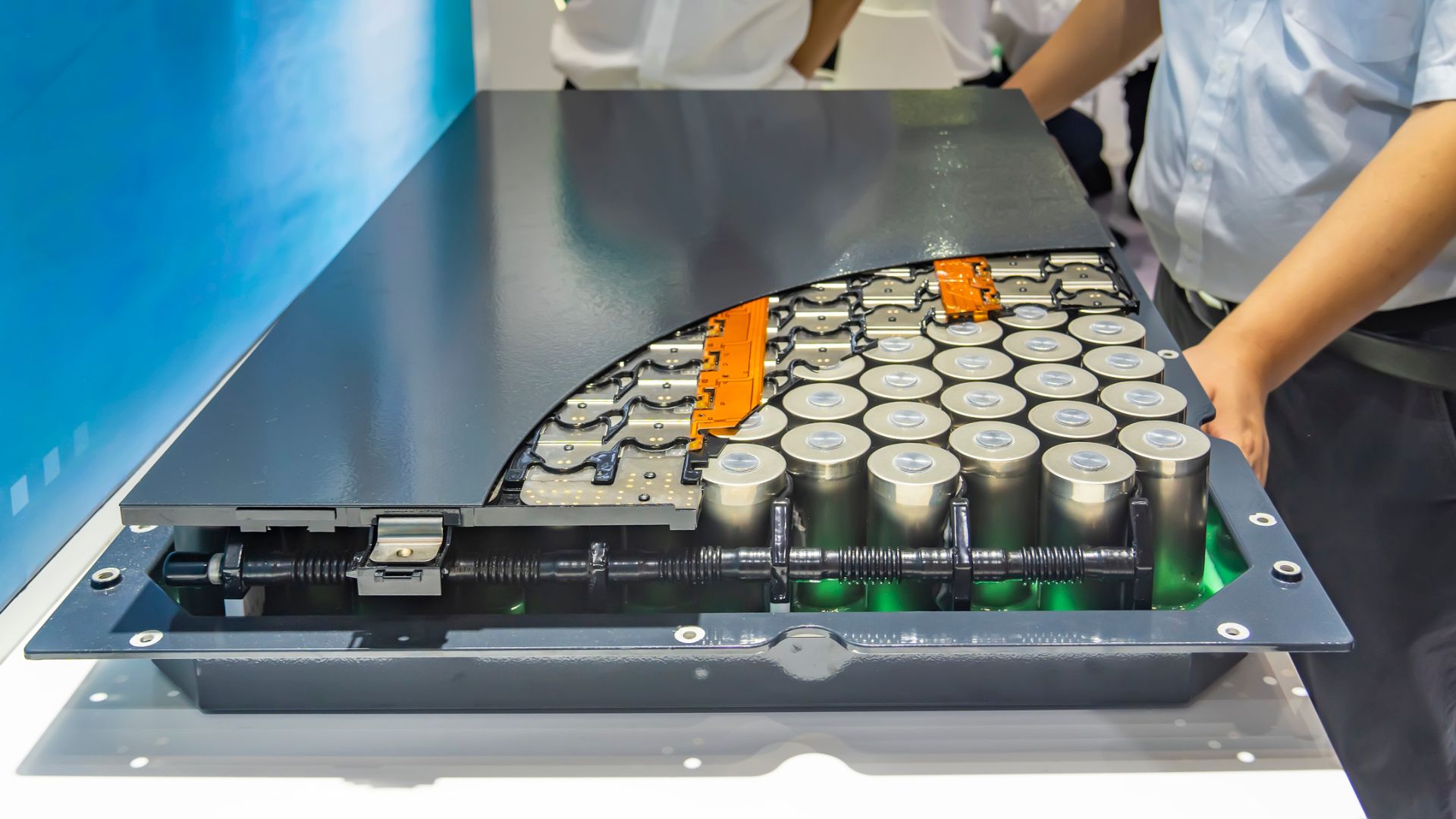This would be game changing for the EV market.
It resolves 2 problems with range anxiety in drivers. First that most EVs have about 250 miles of highway range and then 2nd, the require roughly a 60 to 90 minute stopover for a recharge to continue on. Even if the recharge time takes less than an hour, you have pull off the highway, every 200-225 miles (so you don't get stranded at 250), find the charger (which is getting easier) and potentially wait in line for 30 minutes before you get to use the charger.
Samsung is also claiming a 20 year lifespan on the battery.

 interestingengineering.com
interestingengineering.com

It resolves 2 problems with range anxiety in drivers. First that most EVs have about 250 miles of highway range and then 2nd, the require roughly a 60 to 90 minute stopover for a recharge to continue on. Even if the recharge time takes less than an hour, you have pull off the highway, every 200-225 miles (so you don't get stranded at 250), find the charger (which is getting easier) and potentially wait in line for 30 minutes before you get to use the charger.
Samsung is also claiming a 20 year lifespan on the battery.

Samsung’s 20-year-life EV battery runs 600 miles on 9-minute charge
Samsung's solid-state battery could be the game-changer EVs need, boasting a 600-mile range, 9-minute charging time, and 20-year lifespan.
Samsung’s EV battery breakthrough: 600-mile charge in 9 mins, 20 year lifespan
Given the current high production costs, the initial adoption of these batteries will be confined to the “super premium” EV segment.
Aman TripathiUpdated: Aug 01, 2024 06:29 AM EST

Samsung recently made a splash in the industry by showcasing its recent advancements in battery technology, especially related to solid-state batteries.
At the SNE Battery Day 2024 expo in Seoul, South Korea, the company revealed that its pilot solid-state battery production line is now fully operational.
“We built a pilot line last year to mass-produce all-solid-state batteries by 2027,” said Samsung SDI, as reported by The Elec.
Moreover, the battery’s initial batches have already been delivered to EV manufacturers for testing.
“We supplied samples to customers from the end of last year to the beginning of this year and are receiving positive feedback,” Samsung SDI stated.
Notably, these batteries could power electric vehicles with a 600-mile range, charge in 9 minutes, and have a lifespan of 20 years.
Promising features and initial focus
These solid-state batteries are expected to be smaller, lighter, and safer than the lithium-ion batteries currently used in most electric vehicles. They hold significant potential to revolutionize the EV industry.
“All-solid-state batteries can enhance safety by replacing liquid components with solid ones. When used in the same pack size as existing products, they reduce weight and take up less space,” highlighted the company.
However, due to their high production costs, these batteries’ initial application will be limited to the “super premium” EV segment.
The “super premium” segment here implies a driving range of around 600 miles per charge. In addition, Samsung will be introducing high-nickel NCS products for the premium segment.
Advanced energy density
Samsung’s oxide solid-state battery technology boasts an energy density of 500 Wh/kg, nearly double the 270 Wh/kg density of mainstream EV batteries.
This increased density could potentially double the driving range of current electric vehicles.
Besides, Samsung’s claim of 9-minute charging likely refers to the standard metric of charging a battery from 10% or 20% to 80% capacity rather than a full charge from 0% to 100%.
This practice is common in the industry as charging speeds typically slow down significantly beyond the 80% mark to protect battery health and longevity.
In addition to its work on solid-state batteries, Samsung is developing more affordable lithium iron phosphate (LFP) and cobalt-free batteries, as well as a dry electrode production method to reduce costs.
“We will not only match the price in the popular and entry-level segments, but also mass produce products that can be rapidly charged in 9 minutes by 2026,” emphasized Samsung SDI.
Focus on longevity
That said, limited availability of charging infrastructure remains a significant hurdle. While some Chinese battery makers already offer 5C or 6C charging speeds, equivalent to 480kW and even 600kW charging stations, they are quite few in numbers.
However, notable is the visible approach of all battery makers to offer longer lifespans of batteries. CATL and other battery makers have already announced batteries with 20-year lifespans, often referred to as “million-mile” batteries. Samsung’s vision to “extend the battery life to 20 years” aligns with the broader market trend.. . .
